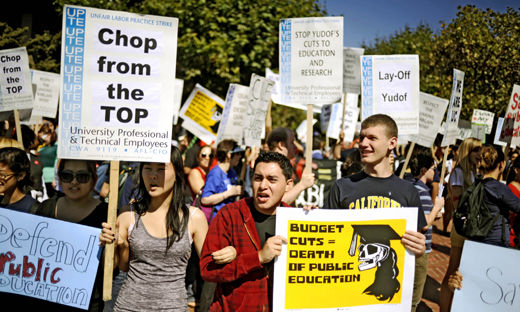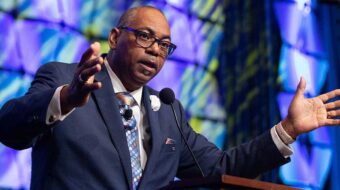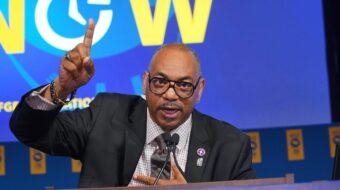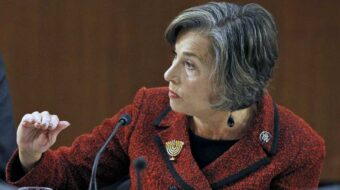
Labor and progressive groups scored a victory yesterday with the defeat of the undemocratic deficit commission in the Senate. The bill proposed by Sens. Kent Conrad, D-N.D., and Judd Gregg (R-N.H.) would have trashed congressional rules and committees and allow right wingers to ram through cuts in Social Security and Medicare, opponents had warned.
The White House, in an expected move to mollify conservative Democrats, is expected to form its own deficit commission. That body, however, would not have the power to circumvent congressional committees, prevent introduction of amendments or squash debate.
“We still need to make sure any commission does not fire at the wrong targets of Social Security and Medicare, which are not causing any long-term fiscal threat,” noted Bill Scher on OurFuture.org this morning. “The broader issue of skyrocketing health costs is the main concern.”
He also warned that progressives will have to make sure the commission does not rush deficit reduction before there is a sustainable “robust recovery from one of the worst recessions in history.”
Labor economists are unanimous in saying that it will take time to recover 7 million jobs, revitalize crumbling infrastructure, expand access to higher education, set up a clean energy economy and reposition the country to compete in the new global economy. All of these things will be required, they say, if long-term deficit reduction is to be achieved.
In that vein progressive and liberal lawmakers are also criticizing an expected call by the president in his speech tonight for a freeze on domestic spending.
The Hill reported this morning that “his (the president’s) liberal base warned Tuesday the three-year cap on most non-defense discretionary spending could hamper an economic recovery.”
Pro-labor columnists also continued to raise their objections yesterday. “Over the three years that the freeze is supposed to last,” notes the Washington Post’s Ezra Klein, “that’s more than $100 billion that won’t be spent. That’s a lot of money. Then they can’t also be telling people that this freeze will allow them to do everything worth doing, as if there was no freeze at all.”
A labor movement pollster said the focus on deficit reduction amounts to a failure to correctly read the recent Massachusetts election results.
“Scott Brown won on our message and it is time to take it back,” declared Celinda Lake who frequently gauges opinion for the AFL-CIO. “Pass financial reforms to win back angry independents,” Lake said, adding, “Democrats must also pass and define health care reform.”
Robert Borosage, co-chair of the Campaign for America’s Future, called the focus on deficit reduction a program of “duck and cover.”
Describing the president, Borosage said, “His clarity and vision can embolden the meek, calm the flighty, and inspire the young. Yet now, with his young administration facing its first significant political challenge, the president apparently plans in his State of the Union to offer not vision but distraction. Instead of taking off the gloves and challenging the lies and distortions of his opponents, he is choosing to duck and cover – which will only add to the public’s confusion and his party’s disarray.”
Photo: AP Photo/Russel A. Daniels At a Sept. 24, 2009 rally by students, professors and employees from the University of California’s 10 campuses protesting budget cuts that led to layoffs, furloughs, course reductions and higher fees.
(AP Photo/Russel A. Daniels)
At a Sept. 24, 2009 rally by students, professors and employees from the University of California’s 10 campuses protesting budget cuts that led to layoffs, furloughs, course reductions and higher fees.
(AP Photo/Russel A. Daniels)
At a Sept. 24, 2009 rally by students, professors and employees from the University of California’s 10 campuses protesting budget cuts that led to layoffs, furloughs, course reductions and higher fees.












Comments